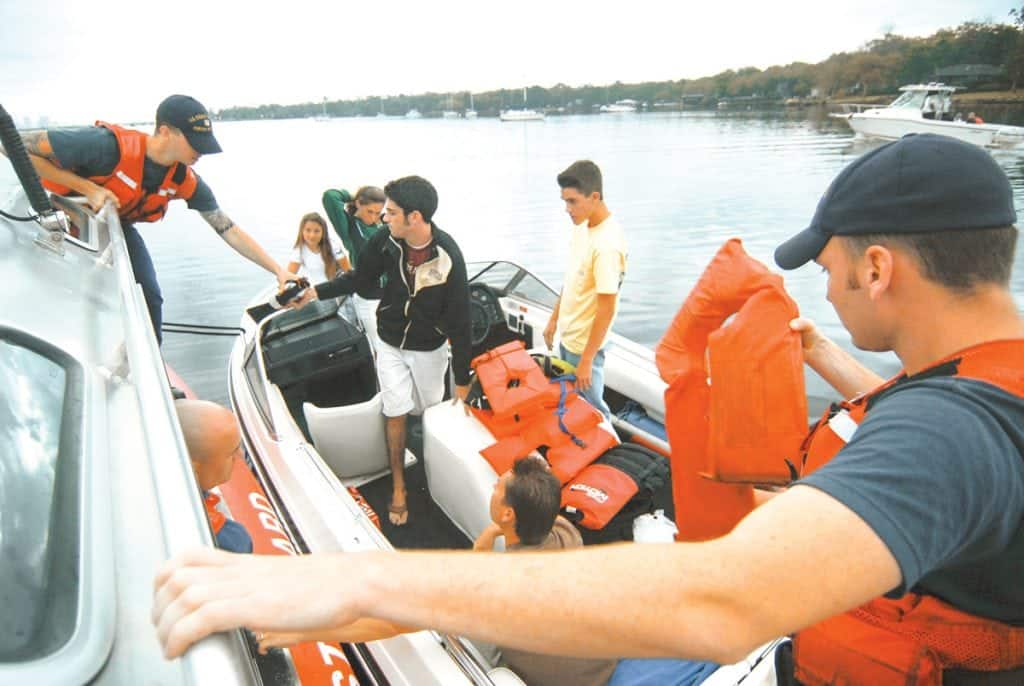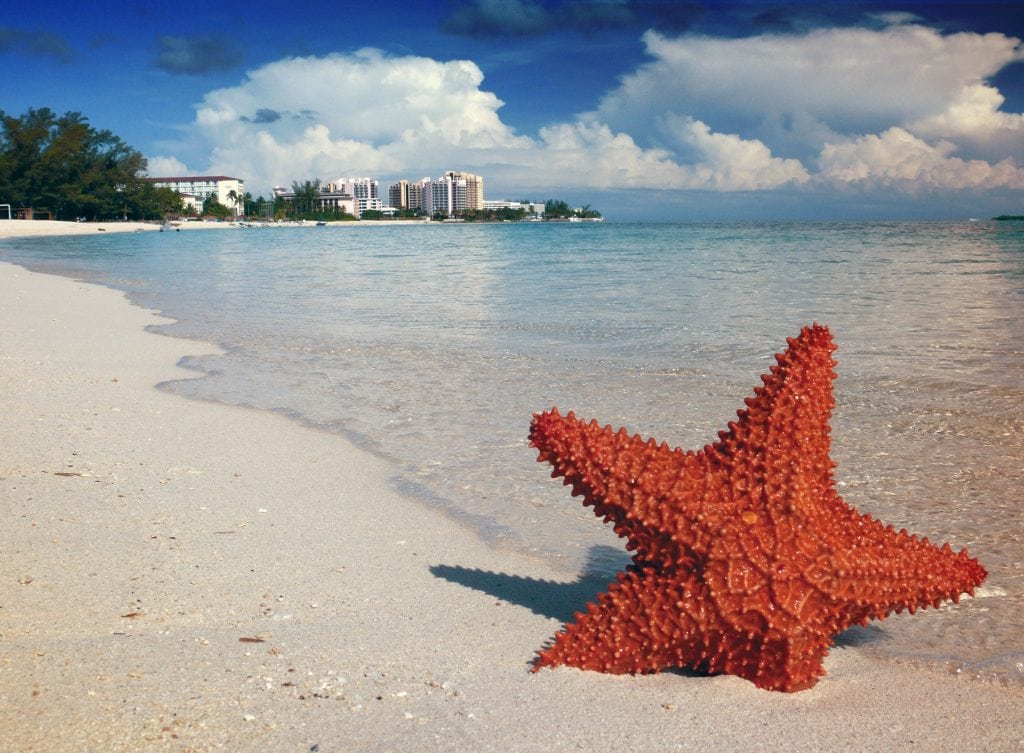If the U.S. Coast Guard boards your boat, it pays to be calm and ready.
The U.S. Coast Guard isn’t to be feared like Big Brother, though boat operators may feel like scofflaws who speed through school zones when the red and blueclad Coasties appear. It’s the same driver angst police officers elicit on the road: What will I get busted for now?
Anyone regularly navigating ports or waters near international borders will likely have an encounter with the Coast Guard. As one of the five branches of the U.S. military— along with the Air Force, Army, Marine Corps, and Navy—the Coast Guard is under the Department of Homeland Security and exists to enforce the law, not to teach it. In addition, when you launch your boat in U.S. waters, you relinquish your Fourth Amendment rights at the dock. The Coast Guard doesn’t require probable cause to board your boat, a provision which dates back to the late 1700s and the Revolutionary War.
“When the Coast Guard pulls up to a boat, often it’s [to say]: ‘Hey, we are just checking to see how you are doing today,’” says Jonathan Lally, a Coast Guard spokesman and Petty Officer 2nd Class, based out of the 7th Coast Guard District, Miami Public Affairs Office. “Our crews are not out there to hassle people. They are out there to make sure people are safe and prevent accidents before they happen.”
Making the Coast Guard’s job difficult when officers want to board your boat will only cause the stop to last longer and may increase suspicion. If you have a firearm or other weapons on board, let the Coast Guard officers know before they board. Once they do an initial safety sweep to their satisfaction and make sure your registration and identification check out, then they may look for drugs. If that happens, they will thoroughly search compartments and closets.
Heeding basic regulations will prevent a citation. The Coast Guard will ensure that all children younger than age 13 are wearing life jackets and that there is a flotation device for each person on board. Make sure you have a noisemaker and throw-ring with a line that is within easy reach. A lack of boat registration or fire extinguisher is a common error, as these are federal requirements. Again, the Coast Guard’s main duties are certifying that boats are secure from foreign threats, environmentally in compliance and, most important, that the boat and passengers are safe.
“Already having on a life jacket when you go into the water is going to increase your chances of survival,” Lally explains. “Not only does it help you float, but it gives us and other rescuers more to search for, because we are looking for basketball-size object in the water. Today’s life jackets are more comfortable than old-style life jackets, as well as colorful.”
Once the inspection is complete, the Coast Guard will issue a Report of Boarding Form CG-4100, a two-page document that consists of a white original and a yellow copy. The captain gets the yellow copy. Keep it handy, as you can show it to Coast Guard officers if you are boarded again soon.
If you are embarking on a long voyage, proper communication before and after the passage is crucial. “File a float plan with family and friends, the more detailed the better,” Lally adds, noting that your boat’s equipment and tools are also vitally important. Make sure your charts— electronic and paper—are up to date so that you can use them to navigate instead of visual aids. “If you do get lost or delayed and don’t make it to a certain marina you said you were headed to, the Coast Guard knows where to search.”
In addition, verify your marine-band VHF is working; the Coast Guard constantly monitors Channel 16. Don’t depend on a cell phone as cell towers are unreliable. You can use your
VHF radio to call for help even in spots where your cell phone has no signal. Also, Sea Tow offers a free Automated Radio Check system to ensure the radio is working properly.
Other tips include stowing extra gear—such as blankets and a tarp—to help protect you against the elements should a thunderstorm arise. Always have a dry bag with a change
of clothes. Staying dry is an essential part of survival. Finally, keeping a “weather eye” is invaluable, as conditions can change rapidly.
“Know how to use your flares if you are forced into using them,” says Lally, adding a caution to be careful not to fire them accidentally so that they’re not available when you really need to send a signal. “Nowadays, there are many boating classes out there where people can learn to be safe. We encourage everyone to take these classes and keep taking them to continue their safety education.” uscg.mil
By Don Minikus, Southern Boating Magazine November 2017
PHOTO: U.S. COAST GUARD















